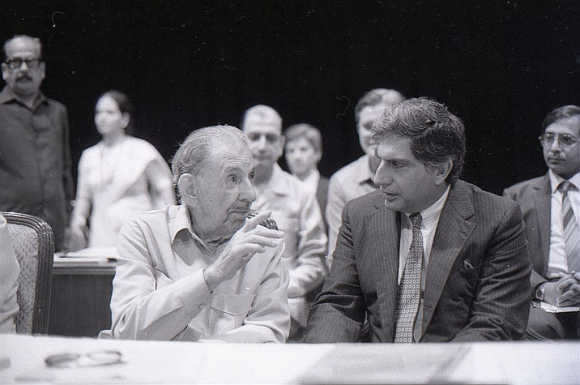Ratan Tata, the visionary industrialist and former chairman of the Tata Group, passed away on Wednesday at Mumbai’s Breach Candy Hospital at 11:30 p.m. He was 86. Known for his exceptional leadership and philanthropy, Tata leaves behind a legacy that has shaped India’s business landscape.
Ratan Tata’s remarkable career saw him transform the Tata Group from a traditional family-run business into one of India’s largest and most globally influential conglomerates. His leadership was marked by iconic acquisitions such as Tetley, Jaguar Land Rover, and Corus Steel, which placed the Tata Group firmly on the international stage.
Often compared to his legendary predecessors Jamshedji Tata and JRD Tata, Ratan Tata’s story is one of humble beginnings, much like his father, Naval Tata. Naval Tata, born in 1904, was a distant relative of the Tata family, raised in the JN Petit Parsi Orphanage before being adopted by Navajbai Tata, the wife of Sir Ratanji Jamsetji Tata. Naval rose from modest circumstances to become a key figure in the Tata empire, ultimately serving as the Director of Tata Sons and the Chairperson of Tata Power.
Ratan Tata, the elder son of Naval Tata and his first wife, Sooni Commissariat, was educated at Cornell University and returned to India in 1962 to work on the shop floor of Tata companies. He gained valuable experience across the Tata Group’s diverse industries, culminating in his appointment as chairman in 1991, succeeding his uncle JRD Tata.
Throughout his tenure, Ratan Tata was not only a force in business but also a champion of charitable causes. Under his leadership, the Tata Group expanded its contributions to social development, healthcare, and education. His deep commitment to philanthropy earned him the Padma Vibhushan, one of India’s highest civilian honors, in 2008.
Naval Tata, who passed away in 1989, had also been recognized for his social work, particularly in the fields of healthcare and sports, and was awarded the Padma Bhushan in 1969. Now, there are growing calls to posthumously honor Ratan Tata with India’s highest civilian award, the Bharat Ratna, to acknowledge his unparalleled contributions to the nation.
Ratan Tata’s death marks the end of an era for the Tata Group, and he will be remembered not just as an iconic businessman, but as a true humanitarian who believed in using business for the betterment of society.



